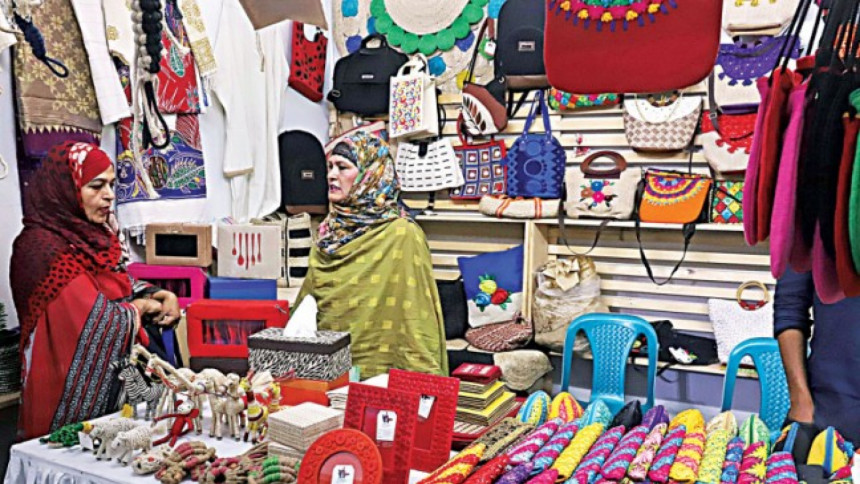Digitalisation, waste management are the key: experts

The time has come to invest in digitalisation, waste management and recycling to ensure business sustainability, said experts and entrepreneurs yesterday.
The pandemic has accelerated the need for e-commerce, so it is important to invest in digitalisation, said Gihan Palihena, director for South Asian product supply chain of American clothing company Kontoor Brands.
"Manufacturers need to invest in waste management too so that we can leave a better planet," he told a webinar of The Hongkong and Shanghai Banking Corporation (HSBC) Bangladesh.
To encourage dialogue on how to support the apparel sector's sustainable transition, the lender organised the first of its webinar series on "Transitioning towards a circular economy for the apparel sector".
Circular fashion industry is a fast-growing movement to reuse and recycle all materials, eliminating waste and pollution and regenerating the environment in a "circular model".
"Investing in people, developing talent and skills and understanding the value of data and speed are all key to being a leader in the market," said Palihena.
More research is necessary too for innovation, he said.
Along with maintaining compliance, the environment issues are also important to be focused, he added.
"We have been focusing on environment issues to be a sustainable business," said Kutubuddin Ahmed, chairman and founder of Envoy Group.
"To reduce carbon emissions and ensure a liveable planet, we have to reduce the use of groundwater to 45 kg for per kg cloth while it was 60 kg for the same cloth previously," he said.
"Overall water consumption also dropped in our factory. We have taken a number of steps to ensure that the environment remains green," he added.
Mahbub ur Rahman, chief executive officer, HSBC Bangladesh, said as a responsible global bank, HSBC was committed to the transition to a global net-zero economy by 2050.
"With a goal to ensure sustainable fashion and encourage a circular economy, we look forward to partnering with our customers, industry players and key stakeholders in mobilising finance and accelerating innovation to lead the transition," he added.
The textile and garments sector is growing strongly in the post-pandemic era and the transition to a circular model, with reuse and recycling, is a really important shift towards sustainability, said Kevin Green, country head of wholesale banking, HSBC Bangladesh.
As more businesses plan to achieve net zero and their customers become increasingly inclined towards sustainability, the future of the industry is most likely to thrive, he added.
Nikhil Hirdaramani, director of Hirdaramani Group, Lucy Acton, senior ESG analyst of HSBC Global Research, Ranjan Mahtani, founder and executive chairman of Epic Group, Lindsey Hermes, head of enterprise solutions of Serai, and Laura Galvin, regional head of international markets of commercial banking Asia-Pacific of HSBC, also spoke at the event.
Source: www.thedailystar.net
